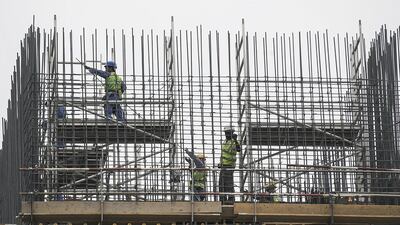On December 9, the United Nations marked its 18th International Anti-Corruption Day, reminding nations across the globe to renew their commitment to fighting corruption. The upcoming months are crucial in this regard, as much of the world begins the process of recovery after being set back by the coronavirus pandemic. Pharmaceutical companies have begun the distribution of the Covid-19 vaccine and once administered en masse, people will be able to return to a world without social distancing rules. It is during this period that governments should be making the task of tackling corruption a part of the long-term post-pandemic recovery process.
Corruption, or abuse of power, exists at various levels of business and could involve false or misleading financial reporting, or bribery and embezzlement. Corrupt practices also exist industry-wide as certain organisations misuse their power against competitors. The repercussions to the economy and society are powerful and enduring. Transparency International has estimated that corrupt practices in the private sector can cost developing countries up to a staggering $1.3 trillion annually. And these roadblocks can be increasingly challenging to overcome as corruption becomes systemic.
Transparency International also points out that corruption in the private sector can diminish confidence in public institutions, slow down socio-economic progress, act as a barrier to FDI inflow, limit access to resources and compromise the freedom and safety of individuals. Impacts of corrupt business practices include inflated numbers on contracts, breach of health, safety and environmental laws, tax avoidance and illicit movement of money. In addition, the indirect impact on society includes public frustration and a loss of trust in businesses, an increase in poverty and inequality, a surge in the level of organised crime, as well as job insecurity and higher unemployment rates.
Undoubtedly, these costs have only escalated during the pandemic. Recovering from the socio-economic impact remains the highest priority for 2021, and there is no better time than now for countries in the GCC region to redouble their efforts to implement anti-corruption practices in the private sector. Our governments must put together blueprints to empower our nations to ensure a stronger and more efficient recovery in the year ahead.
We must first take a closer look at industry regulations with a view to making them stricter and more enforceable. Organisations can be offered incentives to develop and strengthen their internal systems in order to minimise corrupt practices and promote the highest standard of ethics among employees.
Importantly, we need to instil a sense of urgency in educating all the stakeholders in the private sector, including business owners, partners and employees, about what corruption entails. A zero-tolerance policy towards bribery is also mandatory. Stakeholders must be trained to identify workplace misconduct and other matters of concern, and be encouraged to take appropriate action based on the situation. This may entail searching for a solution with their teams or reporting it to their supervisors and escalating the matter if required.
Widespread awareness campaigns and anti-corruption measures need to be implemented urgently. However, this is not an easy task. While some organisations have the capacity to take this responsibility on internally, others can look at outsourcing the job to professional training institutions. In fact, entrepreneurs could set up training institutions that specialise in educating industries about corruption, the extent of its damage to society and the best ways to combat corrupt practices.
Organisations can revisit their vision and mission statements to ensure that ethics and integrity are included as core values. In doing so, they convey the anti-corruption sentiment organisation-wide and can follow this up with training individuals at all levels to ensure these values are understood and implemented across the board.

In order to ensure implementation of anti-corruption initiatives, organisations must make use of both the carrot-and-stick approaches – rewarding employees on performing their duties to the highest levels of integrity while also taking strict action against those engaging in corrupt practices.
Undoubtedly, the implementation of such practices requires a top-down approach. Management should encourage as much transparency as possible at all levels, and increase digital surveillance if required to ensure offenders are caught and warned before a potentially harmful situation gets out of hand.
There is no doubt that 2020 has been an especially challenging year for countries around the globe. The countries in the GCC region were reeling after the decline in oil prices over the past several years. However, they have weathered the pandemic reasonably well, compared to other nations. In a policy paper published in October 2020, the IMF commended GCC governments on the measures taken to mitigate the economic slowdown.
In this context, it is encouraging to witness the continued dedication of our leaders in reviving our economies and their sustained commitment to our long-term goals of socio-economic growth and progress. However, we must take it upon ourselves to ensure that every building block of our social and economic systems is operating as efficiently and ethically as possible.
The private sector in the GCC region has been instrumental in driving economic growth over several decades and achieved excellent strides in helping to diversify our economies. With a dedicated approach to fighting and eliminating corruption, we can ensure that the private sector continues to operate as a highly efficient partner in ensuring progress in the years to come.
Enhanced public and private sector synergies can herald a secure and prosperous future for the GCC region.
Mohammed Alardhi is executive chairman of Investcorp and chairman of Bank Sohar, and was the longest-serving Omani head of the Royal Air Force of Oman


